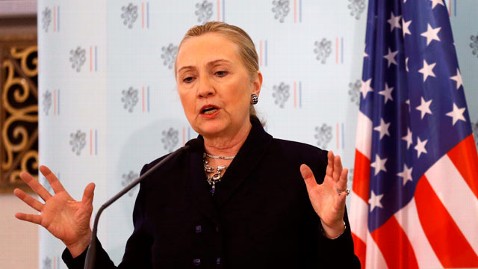The economy generated 146,000 new jobs in November and unemployment fell to 7.7 percent, better than economists expected, despite worries that superstorm Sandy and the looming fiscal cliff would dampen hiring.
There are still 12 million people unemployed in the country, but the Labor Department said Sandy did not "substantively impact" employment.
The Labor Department's Bureau of Labor Statistics dialed back job gains for the previous two months. In October, the U.S. economy added 138,000 jobs, not the 171,000 reported before the election. The jobs added in September were also revised downward to 132,000 from 148,000.
Stephen Bronars, chief economist with Welch Consulting in Washington, D.C., said many economists believed Superstorm Sandy would have influenced Friday's jobs report after causing devastation especially in the Caribbean and U.S. Northeast. Many expected an addition of 90,000 jobs causing the unemployment rate to tick up slightly.
Though the job numbers seemed strong, Bronars still said the overall report was "mixed" as many people were giving up their job searches. He also said he expects the payroll number for November will also be revised downward in the next two months.
"We need to see a few more months of data to see the full impact of both Sandy and expiring unemployment insurance benefits," Bronars said.
Stan Honda/AFP/Getty Images
Businesses and residents in the tri-state region of New York, New Jersey and Connecticut, which produce about one-eighth of U.S. GDP, experienced prolonged power outages and major infrastructure damage.
Bronars said, "Sandy hit the U.S. at a place where it inflicted close to the maximal possible economic damage from a storm that size."
New Jersey and New York were the hardest hit, with at least 120,000 jobs lost, at least temporarily, in those two states, some estimates showed. The Labor Department will release official regional and state unemployment estimates on Dec. 21.
Expiring unemployment insurance benefits for many jobless workers also affected the labor department's household survey as benefits have run out for hundreds of thousands of workers. A condition for receiving unemployment insurance benefits is an active job search.
"It is not surprising that some of the workers that have been out of work for a year and a half would give up job search, for a while, after their benefits ran out," Bronars said.
The labor force dropped by 350,000 in one month and employment fell by 122,000 according to the household survey.
"Those numbers are weak, even given Hurricane Sandy," Bronars said.
In addition, the employment to population ratio and the labor force participation rates fell.
On Wednesday, payroll provider ADP, reported that private companies added 118,000 jobs in November, down from 157,000 in October. However, ADP includes in its figures people as employed if they remain on payroll, whereas the Labor Department's includes workers as employed if they are paid.
Now that election season is over, employers and investors are surrounded by worries from another uncertainty, the fiscal cliff.
Read more: Eliminating Charitable Deduction Would Help Budget, Hurt Charities
Bronars said the November report will not have quite picked up effects of the looming fiscal cliff, as employers prepare for a mix of government spending cuts and tax increases after the end of the year.










